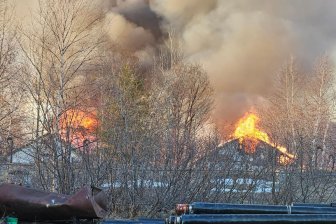It’s been an ongoing debate for years – should you be allowed to drink in public?

It is allowed in many other cities around the world and now the B.C. government is looking at bringing the practice to the province.
The government wants to hear from municipalities and police forces about changing the rules around consuming alcohol in parks or on dedicated streets.
There is already a provision allowing municipalities to designate certain areas as safe spaces for public drinking, but that hasn’t been used for 40 years.
Today is the last day for feedback on the issue.
While municipalities can now designate an area for public drinking, it must be licensed under a temporary permit or licence. However, this provision would allow areas such as a public beach, park or street to be designated a public drinking space without the requirement of any bylaws.
Think areas like Golden Gate Park in San Francisco, and public spaces in New Orleans and Las Vegas.
Alberta and Quebec permit alcohol consumption with picknicking in public places, unlike B.C. and most other provinces that require a license or permit. In Alberta, a sign must be posted outlining the hours and a person is not allowed to be drinking if they appear intoxicated or are not eating while drinking.
The government has outlined two possible scenarios in which people can consume alcohol in public.
(Current Act) Consumption of liquor in public
- 40 (1) Except for liquor purchased and consumed in accordance with a licence that permits consumption in a public place, a person must not, in a public place, consume liquor or possess liquor in an open container.
- (2) Despite subsection (1), but subject to terms and conditions approved by the general manager* not inconsistent with this Act and the regulations, a public beach, public park or public campground, or part of it, may be designated by (a) an order of the government of Canada or of British Columbia, or (b) a bylaw of a municipality or regional district having jurisdiction over it as a place where liquor may be consumed.
- (3) Subsection (1) does not apply to a place designated under subsection (2).
- (4) This section does not affect section 41, and subsection (2) does not apply to an offence under section 48 (1) in respect of a contravention of section 41.
*requires application to the general manager (this is not carried over in the new section where the municipality can make their own bylaws
(New Act – not currently in force) Unlawful possession or consumption of liquor
- 73 (1) A person must not consume liquor, or possess liquor in an open container, in a place other than
- (a) a residence,
- (b) a private place,
- (c) a service area in respect of which a licence, authorization or permit allows consumption,
- (d) as provided under section 11,
- (e) as provided under subsections (2) to (4) of this section,
- (f) an assisted living residence, community care facility, hospital or other prescribed facility as provided in section 9, or
- (g) in a liquor store as allowed under the Liquor Distribution Act.
- (2) Subject to subsection (3) and the regulations, a public place, or part of it, may be designated, by a bylaw of the municipality or regional district that has jurisdiction over the public place, as a place where liquor may be consumed.
- (3) A bylaw under subsection (2) must contain the hours during which liquor may be consumed.
- (4) Without limiting subsection (2), regulations under that subsection may provide that a bylaw referred to in that subsection may not designate
- (a) a specified public place, or
- (b) a specified public place for a specified period of time
What do you think? Should this practice be allowed in B.C.?
What location would you suggest?






Comments